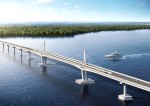PEZA Requests Review of Investment Policies from the Department of More Ecozones
The Philippine Economic Zone Authority (PEZA) had urged the incoming administration to evaluate the investment, trade, and economic policies and legislation, according to Philstar report.
Specifically, the agency suggests investigating the Corporate Recovery and Tax Incentives for Enterprises (CREATE) Act, which decreased the corporate income tax rate and simplified fiscal incentives to encourage domestic and global investments.
PEZA suggests evaluating the motivations and power of investment promotion bodies.
The interagency Fiscal Incentives Review Board (FIRB), chaired by the Department of Finance and co-chaired by the Department of Industry, is tasked with overseeing the granting of incentives for projects with investments over P1 billion. Investment promotion agencies, such as PEZA approve projects that fall below the criterion.
DEVELOPMENT OF WORK-AT-HOME POLICIES
PEZA asks for the institutionalization of work-from-home (WFH) agreements for ecozone locators, including information technology-business process outsourcing (IT-BPO) enterprises, and a review of investment laws. Only on-site businesses are eligible for tax advantages.
In response to quarantine measures, IT-BPO companies were permitted to work remotely during the height of the pandemic. Although up to 90 percent of the labor force worked from home, the fiscal advantages remained in place.
However, in April of last year, as limitations were loosened and the number of coronavirus infections decreased, the government urged businesses to return to work to maintain tax incentives. Even then, businesses with PEZA authorization letters were permitted to have 30% of their workforce work remotely. The remote work arrangement is permitted until September 12 or until the expiration of the COVID state of emergency declaration.
According to this ABSCBN News article, the IT and Business Process Association of the Philippines (IBPAP) advocates for a hybrid onsite and remote work arrangement. According to them, encouraging these structures can support industrial expansion. As more professionals opt for remote work, the hybrid arrangement is also essential for retaining talent in the industry.
DEVELOPMENT OF ECOZONES
To attract more enterprises, PEZA proposes not just an examination of the country's policies but also the continuous growth of business centers. According to the organization, ecozones are essential for fostering the growth of local governments and micro, small, and medium-sized businesses that become exporters' suppliers or exporters themselves. They are preparing for the growth of commercial centers, particularly those located outside of Metro Manila.
PEZA's goal for 2022 is a seven to eight percent increase in approved investments. The agency approved a total of P69.30 billion last year.
Leechiu Properties, a property consulting business, stated in a separate Manila Bulletin story that BPO-friendly office skyscrapers will likely enjoy a jump in occupancy in the coming months. Currently, PEZA-accredited structures with expansive floor plates are attracting several inquiries.
The agency reported that the office market would witness significant growth over the next six months, with 358,000 square meters of active requirements or ongoing deals expected to be finalized. The IT-BPMs represent 195,000 square meters of the overall area. Western companies outsource to the Philippines as part of their post-pandemic business strategies.
CONSTRUCTION ACTIVITY INCREASE
As the country recovers from the epidemic, there will be increased development in key locations due to the anticipated expansion of the office industry.
According to Business World, experts are optimistic that the construction industry will continue to rebound over the next several quarters as the government gradually removes health requirements. Nonetheless, the increase in construction expenses caused by rising gasoline prices may cause a few bottlenecks in the industry.
Nonetheless, according to RCBC chief economist Michael Ricafort, the construction industry's momentum may be sustained by the reopening of the economy, increasing government spending on infrastructure, and the CREATE law.
Colliers, a property consulting firm, anticipates the construction of around 1.94 million square meters of new office space between 2022 and 2024, or roughly 647,400 square meters annually. In 2020, just 428 000 square meters of new office space were completed.




